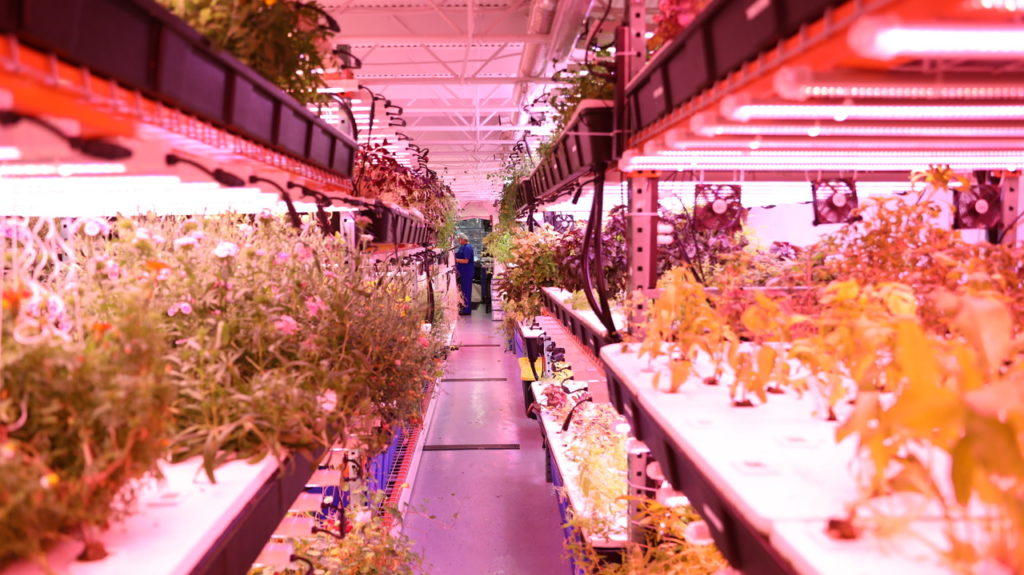Sponsored by Monday Properties and written by ARLnow, Startup Monday is a weekly column that profiles Arlington-based startups, founders, and other local technology news. Monday Properties is proudly featuring Three Ballston Plaza.
One of Arlington’s only urban farms, Fresh Impact Farms, is continuing to enjoy success catering to the taste buds of high-end D.C. restaurants, from Seven Reasons to Oyster, Oyster.
Founded in 2017, the urban agriculture startup in a strip mall on Langston Blvd has experienced significant growth in the last year. With support from a state grant, it doubled the size of its indoor farm and began reaping the benefits of this expansion last year, says founder Ryan Pierce. As a result, its sales grew rapidly in 2023 — a pattern Pierce says he hopes to continue going into 2024.
“If 2024 goes as well as we hope it’s going to go, we’ll start looking for additional expansion space, with the goal of staying here in Arlington,” he said. “We have rather unique needs for real estate… [and Arlington] keeps us really close to our primary clientele.”
That has been and always will be D.C.’s pioneering chefs in the fine dining scene, who Pierce says are “the first movers in terms of new trends in food.”
This drives Fresh Impact Farms to keep trying out dozens of new and uncommon varieties of edible succulents and herbs as well as different color combinations of rare, edible flowers. Overall, the farm is home to well over 400 varieties of crops, he said.

“We’re always introducing new products,” Pierce said. “That’s something they expect. They’re always asking us, ‘What’s new? What can we get from you that we couldn’t get from you in the summer?’ Half of our job is finding out what we should be growing and then our team has to figure out how to grow it.”
Pushing the boundaries of edible plants requires highly skilled staff, he noted.
Fresh Impact Farms is taking a more modest, or cautious, approach to growth when it comes to adding clients — too many would strain his farm’s production levels — and incorporating new tech.
“There’s always the initial push to make everything as complicated as possible and get as much tech into the farm as possible,” Pierce said. “What we’ve found is that sometimes, the human approach works better. While we automate watering, lighting and climate control, we don’t automate harvest or seeding. For those, we’ve found, it’s better to have a human touch.”
Beyond Fresh Impact Farms, Arlington has one other urban farm, Area 2 Farms, located in a brick industrial building in Green Valley. While neither is in an office building, Arlington County has taken steps to make it easier for urban farmers to begin growing plants in vacant, underused and outdated office spaces by loosening its zoning restrictions.
Like the county, Pierce — who sits on Arlington’s Industrial Development Authority — says he is constantly thinking about how Arlington can fill its office space. Upfront building conversion costs, however, might make it difficult for more farms to take advantage of these looser zoning rules.
“How do you adjust the centralized HVAC to accommodate plants over people? While the temperature and humidity is about the same you’d want it in your house, the systems in which you do that are completely different. It’s a much different challenge than someone people realize,” he said.
The county has to attract new talent and to its credit, is doing so via its Innovation Fund, he said.
“As far as putting farms, that’s a real big challenge,” he said. “Ultimately, it’s one of those things where I want to look for solutions but it doesn’t mean my business is the solution for that particular problem.”


